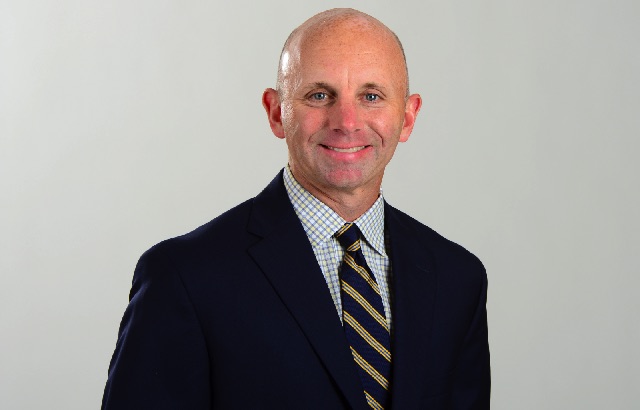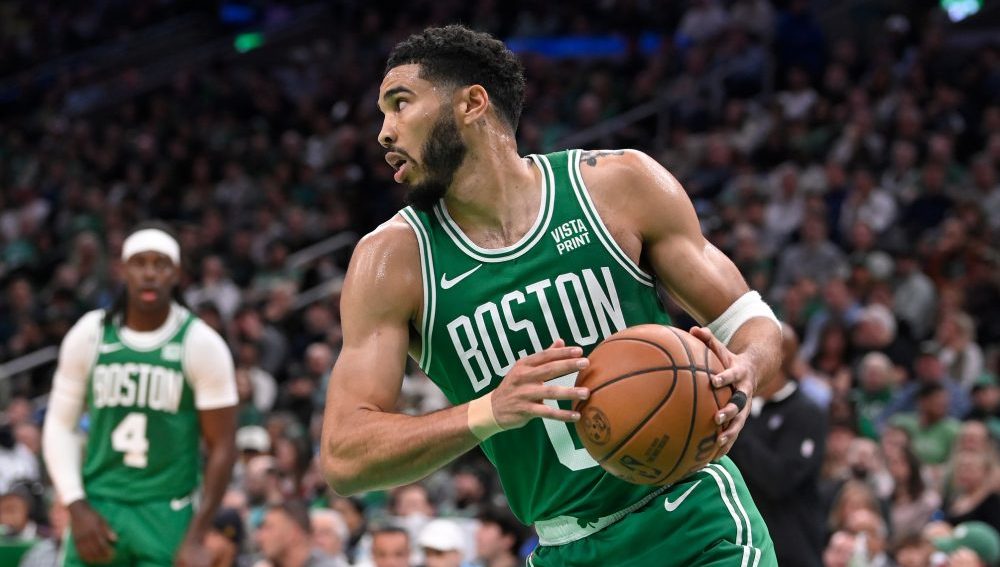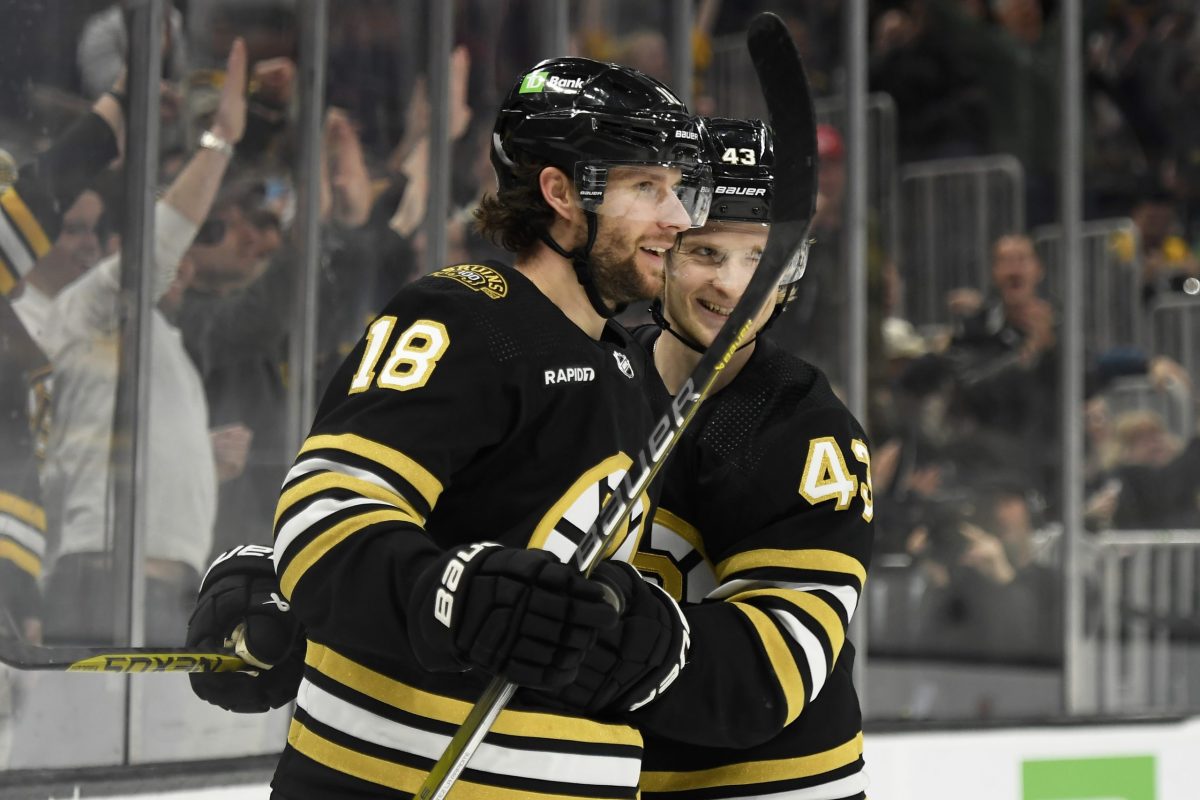The latest
“If I knew it was so easy to utter one sentence and become the ‘bravest man in broadcasting,'” ESPN announcer Sean McDonough laughingly told me, “maybe I’d find a way to say something similarly great.”
While calling the play-by-play of a flag-drenched Monday Night Football game earlier this season, McDonough pointed out the stop-and-start affair was the kind of game nobody wants to watch. He was immediately venerated as a folk hero by Forbes, Deadspin, The Big Lead and, yes, Awful Announcing.
“My philosophy while doing this has always been I should be talking about what I think the people at home are thinking while they are watching it,” he said. “My response was, ‘Oh my goodness, I can’t believe how many flags they are throwing in this game on plays like that.’ But you know, that got extrapolated in some of the articles to be, ‘Sean McDonough says the officiating is the reason that people aren’t watching the games.'”
The narrative that emerged — that McDonough bit the hands of the bazillion-dollar giants who feed him — couldn’t have been further from the truth. In fact, McDonough said, a few weeks later he brought the headline-making incident up at the end of an unrelated chat with NFL VP of officiating Dean Blandino, who immediately told McDonough not to worry about it. From his perspective, the league has been helpful when he’s asked for help, and very hands-off otherwise.
“All the feedback [from the NFL] that I’ve gotten, and there hasn’t been much, has been very supportive,” McDonough said. “The way I take it is, when you don’t hear from them, that’s good. In any walk of life, you are more likely to hear from somebody when they are NOT happy. It’s like mail that you get from viewers, people are more likely to sit down and send you a note or email or something — or now, I guess, rip you on Twitter — when they are upset about something more than they are to pass along a compliment.”
While I still miss Tirico, I gotta say Sean McDonough is calling a fantastic game tonite. Very electric. Clean. GOOD.
— Steve Czaban (@czabe) December 13, 2016
If an NFL fanatic who had never watched a game of any other sport had tuned in to McDonough’s first Monday Night Football, he or she would have never known they weren’t listening to a pigskin lifer. But McDonough’s unique career path has given him the opportunity to call a huge variety of sports and sporting events: The World Series, March Madness, the Masters, the U.S. Open (both golf and tennis varieties), three Winter Olympics, the Orange Bowl, the NCAA lacrosse championships, you name it.
Having done so many events, across so many years, for so many different audiences, McDonough gets recognized everywhere he goes — often just by his voice alone:
“Years ago, Buck Martinez and I did the voices for an EA Sports MLB game [Triple Play Baseball 2001, per the Internet]. Buck was in town here in Boston, probably for a game. He and I went out for dinner one night, and the waitresses were coming back and forth several times to the table. Maybe the fourth or fifth time she came back, she said ‘I finally figured it out,’ and we said, ‘What are you talking about?’ She said, ‘Well, I heard you two talking, and I’m thinking ‘I know those voices’, and it dawned on me: my kid played that game all the time! I hear your guys’ voices all the time in my house!'”
But broadcasting all of those different sports ramps up the difficulty along with the audience. How does he call so many different sports as if they’re each the only sport he’s ever called?
“I think it goes all the way back to the beginning when I was a kid and I knew this was what I wanted to do,” the son of legendary Boston Globe sportswriter Will McDonough said. “I always wanted to do this because I loved sports and I loved all sports, not because I wanted to be a TV person or a broadcaster or a celebrity. This was a way for me to stay involved in sports my whole life, because I grew up around sports as the first thing I can remember.”
After studying the craft at Syracuse University, calling Syracuse sports and the local minor-league baseball team, McDonough began calling Red Sox games for WSBK in Boston. In one sense, it was a childhood dream come true — but his first big job was never going to be his last.
“I’ve never wanted to just be a baseball announcer,” McDonough said. “The commitment to calling 162 games wouldn’t leave enough room to tell all the great tales that are out there. “I just love sports. I love competition. Part of the fun of this job for me is meeting people who are involved in these events — getting to know their stories, and them as people, and their backgrounds, and things they have had to overcome to get there.”
His drive and talent were noticed by CBS Sports, and the next 10 years of McDonough’s career were a whirlwind tour of the biggest events in the sporting world. Not only did he become CBS’s lead national baseball announcer, and temporarily held the record for the youngest play-by-play man to call a World Series, he had to learn how to call sports he only had a passing familiarity with.
“Play-by-play really is a transformable skill,” he said. “You are describing the action as it happens. Hopefully, you are supplementing that with pertinent information and the right stats at the right time, the well-placed personal anecdotes, maybe a humorous little comment along the way, good interaction with your partner, paying attention to what’s on the screen.”
But that all assumes a basic working knowledge of the game. What if ESPN offered McDonough the chance to call the world championship of, say, jai alai on a few days’ notice?
“I would have great trepidation,” he said, laughing, “just because I know literally nothing about it and that would be a very short window to learn.”
https://www.youtube.com/watch?v=medvtWhkYvY
Instead, McDonough offered an example from the 1992 Winter Olympics in Albertville: Originally slated to cover short-track speed skating, he was in the middle of researching the brand-new medal event when he was suddenly switched to luge and bobsled. McDonough said he went to the Olympic training center in Lake Placid, NY, and talked extensively with the coaches and athletes. He even went down the track himself on each kind of sled. But even for a broadcaster with his experience and commitment, there are limits.
“There are occasionally sports I watch on TV and I think, ‘I don’t know if I would be able to do that,’ at least not without enough lead time to really immerse yourself and learn enough so that you feel comfortable,” he said. “That’s one of the only times I really get uncomfortable, thinking ‘You know what, I’m not as well prepared for this as I should be.'”
When I asked McDonough if there was any time he really felt he’d under-prepared, he said he’d talked about this with former ESPN colleague (and predecessor in the MNF booth), Mike Tirico. They’re both fanatic over-preparers — and yet, McDonough notes, the drive to make sure you know everything you possibly can comes with its own danger.
“I think sometimes there is the temptation to get it [all] in, he said. “By doing so, you kind of guarantee you are going to talk too much.” Especially for younger broadcasters, he said, there’s the temptation to prove you know your stuff. Sometimes, the best thing you can do for the viewers at home is let the game do the talking.
“[ESPN college football color commentator] Chris Spielman and I used to say, ‘Every series of downs or couple of series of downs, neither one of us says anything in the time between the tackle and the snap before the next play. Let’s let there be 30 seconds of silence,'” McDonough said. In fact, he continued, sometimes being thrown into the deep end on an assignment can improve the end result — you’re not looking at your notes or trying to recite a nugget about everybody, just watching and calling the action.
McDonough says both he and Tirico lament not being able to let go and wing it like that more often — but since they’ve reached the top of their profession with the whole overpreparation thing, it’s clearly working for them.
McDonough’s path to top of the mountain, though, wasn’t a straight line. After 10 years with CBS, his contract was allowed to lapse so they could poach Dick Enberg from NBC. As the Chicago Tribune‘s Ed Sherman wrote at the time, “a good guy who does a good job got a raw deal.” As regular readers of Awful Announcing know — and McDonough, unprompted, described himself as such — the broadcasting carousel can spin as quickly and unpredictably as the coaching carousel.
How does he handle the adversity that comes with working in this business?
“I’ve always believed throughout my life that God has a plan for each of us,” he said, “and if you trust in that, you will wind up where you are supposed to be. That doesn’t mean it isn’t difficult when things happen that you wish at the time hadn’t happened.”
McDonough talked about the end of his time calling Red Sox games opening up the opportunity to do all kinds of events, including “really, really great television” with a star-studded golf crew at ESPN. “[I was] just sitting at St. Andrews and looking around at this historic, unbelievable venue with this major championship going and thinking, ‘If I was still doing the Red Sox games, I wouldn’t be sitting here.'”
Time and again, McDonough talks about his career achievements in terms of the people he worked with: The CBS golf team, Spielman and Todd McShay, the classic three-man NCAA basketball booth he was part of with Jay Bilas and Bill Raftery. The chance to do great TV with great people he cared for seems to mean as much to him as the opportunities to broadcast all the biggest events in sports.
“Maybe it wasn’t the very top of our business, but it was pretty darn close and I always felt blessed to be able to do those things,” he said. Though there’ve been frustrations and disappointments along the way, McDonough has always chosen to think about the “thousands and thousands” of aspiring broadcasters who would do anything for a chance to call any one of the countless events he’s called for ESPN.
https://youtu.be/gazol6yDaj0
“I wake up every day and thank God for the life I have, my family, my friends, the job I have, living in this great city in the greatest country of America,” McDonough said. “That’s just the way I choose to live my life. I’ve been blessed beyond all measure and more than I deserve. And I am thankful for it. I would have been equally thankful even if MNF never came along.”
But the opportunity did come along. And now the whole world wants to know: Is working with Jon Gruden amazing, or terrifying?
“It’s probably a little bit of both,” he said, laughing. He again noted Tirico is a good friend of his, and he’d watched plenty of MNF before taking over the gig. “I would say it’s what I expected, but with Jon there’s a lot of the unexpected, the unpredictable — and I think that’s part of the fun of it. You never really know what he’s going to say, or what direction he’s going to head in. To me, that’s fun.”
Once again, McDonough explains that personal relationships are huge part of his professional satisfaction. “Jon’s a good guy,” he said, “So that’s been the best part of it for me: forming another friendship that’s meaningful.”
But for much of the season to date, MNF hasn’t been immune from the ratings drop the entire NFL has suffered. Though McDonough said he was “excited” about the schedule when it came out, a combination of disappointing seasons by some teams and disappointing performances by others have made for a lot of clunkers. To McDonough, the best way to get more eyes (and ears!) tuned in is obvious.
“One solution to strengthening the ratings of MNF going forward is to have it be a stronger schedule,” he said. “If we had more of the New Englands and the Seattles and the Dallases, teams like that, I think the ratings would be stronger. That’s just logical.” As if to prove his point, the Week 14 matchup between the New England Patriots and Baltimore Ravens drew the biggest overnight rating in years:
Ravens-Patriots (9.1) delivers ESPN its best Week 14 "MNF" overnight rating since Cowboys-Bears in 2013 (11.0).
— Austin Karp (@AustinKarp) December 13, 2016
Of course, McDonough can’t control the NFL schedule, or what happens when toe meets leather. All he can do is what he always does: Prepare as best he possibly can, keep the interests of the viewer in mind, call it as he sees it, let the action speak for itself and have faith it’s all going to work out the way it’s supposed to.
It’s gone pretty well for him so far.








Comments are closed.